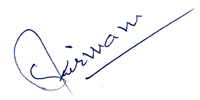Counting Castes, Counting Controversies: Supreme Court, the Census and the OBC Question
Editorial
The Budapest Gambit: A Dangerous Diplomatic Spectacle
The political world is abuzz with speculation over a potential meeting between Donald Trump and Vladimir Putin, hosted by Hungary’s Viktor Orbán. While officially unconfirmed, the very plausibility of such an event reveals a stark and alarming shift in the global order. This is not merely a diplomatic engagement; it is a calculated political spectacle designed to symbolize the triumph of a rising illiberal axis over the Western democratic alliance.
The choice of Budapest is profoundly symbolic. Orban, having systematically dismantled democratic norms in Hungary, now positions himself as the bridge between a potential Trump-led America and Putin’s Russia. For Trump, Orban offers a friendly stage, free from the critical scrutiny of traditional allies. For Putin, it is a chance to engage with a U.S. leader from within NATO territory, all while being hosted by a leader who has actively obstructed European support for Ukraine.
The agenda would be devastatingly straightforward: a deal on Ukraine. Trump’s boasts of ending the war “in 24 hours” point toward a forced settlement that would likely reward Russian aggression with frozen frontlines and coerced Ukrainian neutrality. Such an outcome, negotiated over the heads of Kyiv and European partners, would not be peace but capitulation. It would shatter the post-war principle that borders cannot be changed by force and embolden autocrats worldwide.
The implications are dire. A Budapest summit would signal a fundamental rupture in the transatlantic partnership, suggesting that the U.S. might abandon its allies in favor of unilateral deals with adversaries. It would leave Europe isolated and vulnerable, and betray the sacrifices of the Ukrainian people.
The world must watch this potential rendezvous not with curiosity, but with profound concern. It represents a gambit to replace a rules-based order with a cynical, transactional system where strongmen dictate terms. The hope for stability lies in the resilience of democratic institutions and the rejection of a politics that trades long-term security for short-term, self-serving deals. The fate of Ukraine, and the future of democratic solidarity, hang in the balance.
“Beyond Gravity: The New Frontier of the Workplace”
With the launch of Orbital Assembly’s Voyager Station coworking module, humanity has quietly crossed another frontier — not of exploration, but of enterprise. The concept of a permanent workspace orbiting Earth may sound like science fiction, yet it reflects a deeper truth: the boundaries of human ambition are steadily dissolving.
Voyager Station’s new coworking hub is not merely an engineering feat; it symbolizes the commercialization of space and the democratization of access to orbit. For the first time, private firms can operate offices in microgravity, blending research, law, and technology in an environment once reserved for astronauts. The early tenants — SpaceLaw Group and Nebula Consulting — highlight the diversity of this new frontier. While one drafts legal frameworks for off-world property rights, the other pioneers orbital research and logistics. Together, they represent a future where law and science evolve hand in hand above Earth’s surface.
Yet, this exciting development also raises essential questions. Who governs space commerce? How do we ensure that orbital enterprises do not repeat the mistakes of Earth — inequality, exploitation, and environmental neglect? The answers must come not only from policymakers but from those now working beyond the planet.
Still, the significance of Voyager Station cannot be understated. It redefines “the workplace” as a domain without borders — where innovation literally knows no gravity. The day when business meetings are held among the stars is no longer distant. What began as a symbol of human curiosity is fast becoming a platform for human creativity.
In the glow of this new dawn, the message is clear: space is no longer just a destination — it is the next workplace of humankind.


 SAS Kirmani
SAS Kirmani















